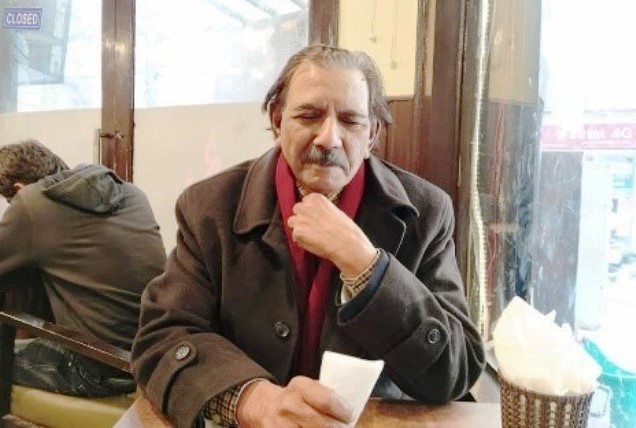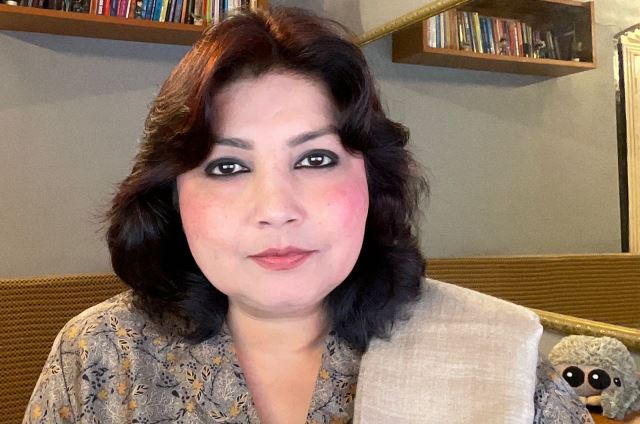Neshat Quaiser from the Centre de Sciences Humaines (CSH Delhi) says the incumbent regime is trying to establish legitimacy of a majoritarian state. His views:
Deeply disturbing suspension of 146 MPs is just a surface manifestation which is otherwise reflection of a much deeper malady and requires a dispassionate discourse. Immediate cause may be to divert attention from the real or perceived near demolition of the myth of a seemingly invincible supremacist present ruling dispensation after the intrusion of the two youths even inside the Indian Parliament, unlike the 2001 Parliament attack.
The conditions of the production of what is happening around relate to the Political Monotheism and the emergence of a designed politico-religiously propelled majoritarian state, unsure though from within, supported by the related social forces beneath the surface.
The ideology of the political monotheism and the newly emerging state, which is never neutral guided by the Constitutional ethos despite its claim to be so, acquire ontological centrality to explain the present India society and polity.
The idea of the political monotheism was first conceptualised during the Tahrir Square movement to outline the shift taking place within the Islamist thinking that I characterised as being based on the ideology of political monotheism. This led me to write an essay entitled “From Political Islam to Political Muslim: Questions of Citizenship and Pluralist Turn” first in 2015.
The concept of the political monotheism is equally applicable to the ideology of Hindutva the mirror image of Islamism. Political monotheism signifies epistemological absolutism of an exclusivist politico-religious-theological hegemony and domination to establish a religiously majoritarian unitary state. Mono-vocality constitutes its hegemonic foundational mechanism as opposed to dialogical processes. In order to shift the focus from the extremely undesirable everyday social existence of the majority of Shudra-Dalit disenfranchised population and the vulnerable high caste middle classes in a state of unstable and egregious socio-economic material conditions, Hindutva political monotheism, with its myriad manifestation, is propelled through brazenly masculine populist authoritarianism to legitimise and normalise the Hindutva ideological apparatuses, in order to instil in them a sense of belongingness to an otherwise antithetical unitary Hindu state. And to appeal the popular imagination of the majority and of the religiously dispersed Hindu population and to produce homogeneousness through explicit or implicit coercion in them, the project of Hindutva political monotheism employs the ideology of scapegoatism and emerges as the sole triumphal avenger of the injustices and oppression perpetrated on ‘Hindus’ by the foreign ‘invaders’ in the past which is responsible for the present plights of the ‘Hindus’ and the destruction of the Hindu Golden Past.
A Hindutva propelled politically monotheistic majoritarian state, thus, by definition has the political project to ‘govern’ people and institutions for its own sustenance, continuation and survival. However, this all-powerful, seemingly invincible state is never sure of the logic of its own existence, as a result, it continuously must engage in such demonstrable acts – such as lynching of Muslims and enacting laws to suppress the voices of opposition – whereby it is seen as the ‘sole avenger’ not only to make the governed fall in line, but also assure itself of the legitimacy of the logic of its existence. Thus, the ideology of political monotheism and politically monotheistic state ultimately “petrify the true meanings of the subjugated free through the mechanism of choreographic occultatation” in order to produce a petrified post-colonial Hindutva subject.
Thus ‘governing’, controlling and gagging the media in all forms is also linked directly with the notion of governance of a politically monotheistic state, which is never neutral guided by the Constitutional ethos despite its claim to be so. Thus, controlling of media is all about the question of establishing legitimacy of what is not legitimate, as the state is not viewed as the redeemer of its people. And much of the corporatised media today, in one or another way, is aligned with the ruling establishment and the ideologies that support it. However, there are media which would not like to fall in line. So, the state in fact thoroughly detests the dissenting, the questioning media.
Similarly, the politically monotheistic state intervention in the constitution of law and justice and “judicial choreographic occultation resulting in petrification of true meanings of life, existence and freedom” is palpable.
In such a situation, in order to reclaim the seriously backsliding constitutional and civil democratic ethos robbing people of their right to be true citizens, a broadest possible non-dogmatic democratic alliance based on counter-intitutive praxis to counter the communal-feudal-capitalist technologies of domination alone is the only way out. This is necessary to assert that democracy cannot be reduced to electoral politics alone, so that creatively evolving constitutional and civil democracy could be reclaimed and politically monotheistic state’s technologies of domination could be answered.
The narrator has also taught in the Department of Sociology, Jamia Millia Islamia, Central University, Delhi
As told to Amit Sengupta
For more details visit us: https://lokmarg.com/

